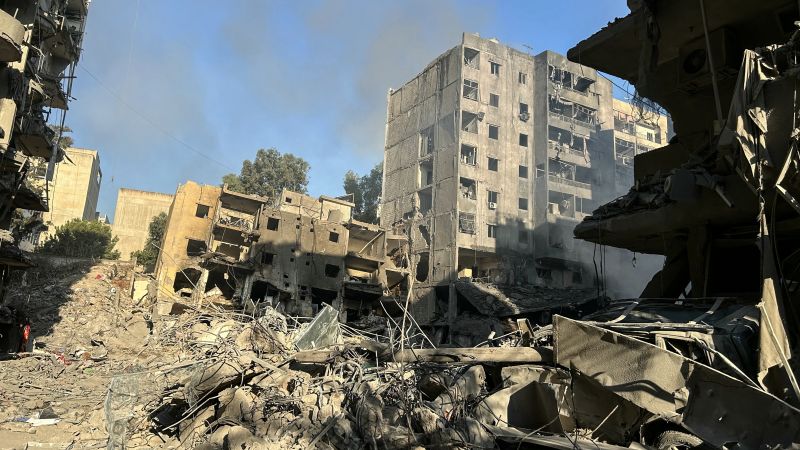The Israeli killing of Hezbollah leader Hassan Nasrallah in Beirut has dramatically inflamed fears of a full-scale war in the Middle East — a possibility that US President Joe Biden’s administration has been desperately seeking for months to forestall, according to current and former US officials.
“I don’t see how this doesn’t go much wider soon,” said one senior Western official.
Hezbollah will almost certainly respond, according to Jonathan Panikoff, a former senior intelligence official specializing in the region, and Iran is likely to play a role.
“The response is likely to be big enough that the odds it will prompt a full-scale war will skyrocket,” Panikoff said.
Hezbollah, which the US designates as a terrorist organization, is Iran’s most powerful and capable proxy militia in the region. There are some indications Tehran had already grown alarmed about the degree of damage Israel has been inflicting on the group, according to a US military official.
A senior US official said the US believes Iran will intervene in the conflict if they judge that they are about to “lose” Hezbollah. The combined effects of Israel’s operations against Hezbollah had already taken hundreds of fighters off the battlefield, according to that official and another person familiar with the intelligence.
US officials have long assessed that senior Hezbollah leadership has wanted to avoid all-out war with Israel, even as fighting has intensified in recent months. The killing of Nasrallah is categorically different, however.
Hezbollah’s rank-and-file have long been agitating to play a bigger role in the fighting with Israel since October 7, and it now risks losing legitimacy in the eyes of its fighters and supporters if it does not offer a maximalist response to the killing of its leader, according to Panikoff.
The strike was also a clear signal of Israel’s willingness to risk a broader conflict, and that it was not close to accepting a ceasefire proposal backed by the US, according to Mick Mulroy, a former top Middle East official at the Defense Department. Hezbollah is also now unlikely to be interested in the negotiations.


